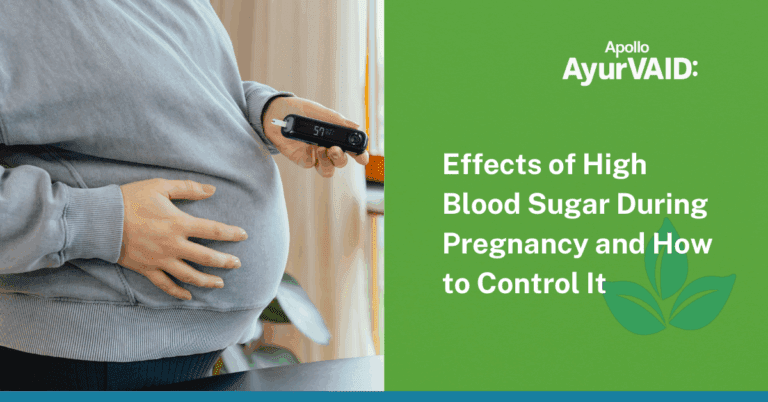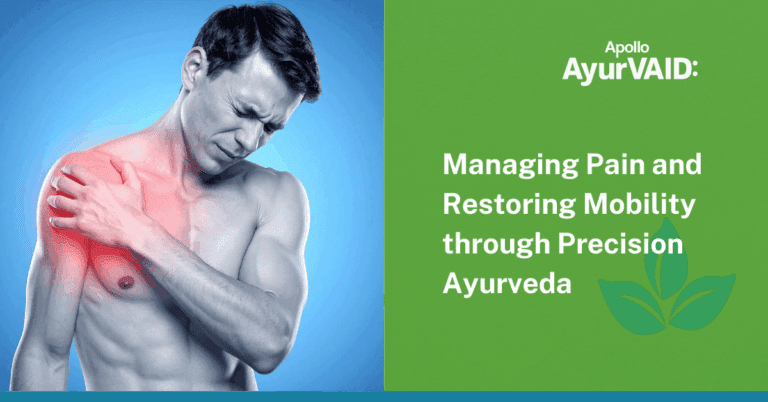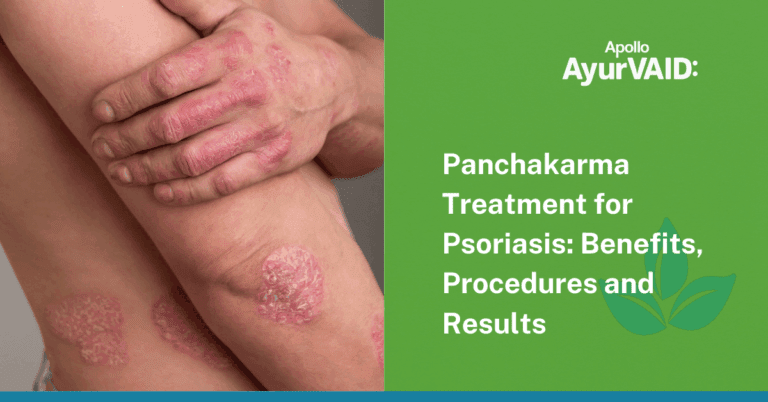
Parkinson’s: What You Are Dealing With
Parkinson’s disease is a neurodegenerative disorder characterised by the depletion of dopamine-producing neurons in the substantia nigra region of the brain. This loss leads to hallmark motor symptoms such as tremors, bradykinesia (slowness of movement), rigidity, and postural instability. However, the clinical picture extends beyond motor symptoms, often including non-motor symptoms like sleep disturbances, obstructed speech, mood disorders like anxiety and depression, and cognitive changes.
Conventional treatments aim to increase dopamine levels by administering Levodopa (a precursor to dopamine) or by using medications that inhibit its breakdown in the brain. As the disease worsens, higher doses of Levodopa are needed, which causes motor side effects and abrupt changes as a response to Levodopa, prompting patients to seek natural remedies for Parkinson’s.
Parkinson’s disease can be correlated to Kampavata in Ayurveda, caused by aggravated Vata, affecting the Majja Dhatu (nervous system) and Srotas (subtle channels). These imbalances are interestingly said to originate in Koshtha (the gut), as neurological disorders are believed to be rooted in disturbed Vata in the digestive system. This is why a gut imbalance is an early alarm sign of Parkinson’s disease.
Natural Remedies for Parkinson’s - What Ayurveda Can Offer
An evidence-based Ayurveda approach is often explored by those seeking a natural cure for Parkinson’s disease, though it is important to understand that Ayurveda and other traditional systems do not offer a complete cure. Instead, Ayurveda provides supportive treatments that help reduce symptoms and improve quality of life. Treatment typically begins with Purvakarma (preparatory therapies) such as Deepana-Pachana to stimulate digestion and reduce Ama (toxins), and Rookshana to balance Kapha. Snehana (external oil therapy) and Snehapana (internal administration of medicated ghee) help pacify aggravated Vata, easing tremors and rigidity. Swedana (steam therapy) prepares the body. These form the basis of natural remedies for Parkinson’s disease, aiming to restore balance and support nerve function.
The main procedures – Pradhanakarma, include Vasti (medicated enemas), which is important because the colon is considered the seat of Vata and linked to the gut-brain axis involved in Parkinson’s disease. Nasya (nasal therapy) delivers medicated oils to the brain, supporting motor and cognitive functions. Other treatments like Virechana (purgation) and Shirodhara (oil pouring on the forehead) help reduce stress, improve mood, and enhance sleep quality. Paschatkarma, or post-treatment care, focuses on supporting brain health and maintaining treatment benefits in Parkinson’s management. It involves Medhya Rasayanas (brain tonics) to enhance memory and cognitive function, and dietary guidelines. Eating lighter, warm foods and maintaining regular meal times helps prevent aggravation of Vata, the bodily energy linked to movement and nervous system balance. Spices such as cumin, black pepper, and ginger support digestion and may help reduce nerve degeneration.
Lifestyle adjustments like establishing a consistent sleep schedule and practising gentle exercises, Pranayama (breath control), and yoga can improve mobility and stabilise nerve function. These natural remedies for Parkinson’s, when combined with professional care, can restore balance, improve digestion, enhance nerve function, reduce Inflammation, manage Parkinson’s Disease by reducing motor and non-motor symptoms, and optimise Levodopa’s Therapeutic Window.
Word of Caution for Home Remedies for Parkinson’s: Kapikachu (Mucuna pruriens), a traditional Ayurveda herb often used as one of the natural home remedies for Parkinson’s, contains natural Levodopa (L-dopa) and may offer therapeutic benefits. However, it is a powerful herb that should be used cautiously and within recommended limits. Overuse can lead to neurological, cardiovascular, and digestive problems. Therefore, it’s important not to self-administer such herbal remedies without guidance from a qualified practitioner. Its use during pregnancy and breastfeeding should also be avoided unless prescribed by a healthcare professional.
Conclusion
There’s a lot we still don’t know about Parkinson’s. That makes the experience scary — and often frustrating. But you’re not helpless. Whether you’re the patient or the caregiver, you have options to support the body, not just suppress symptoms. Ayurveda may not offer a cure. But it can offer clarity, stability, and relief. And in the long run, that is the difference between surviving a disease… and living with it.







